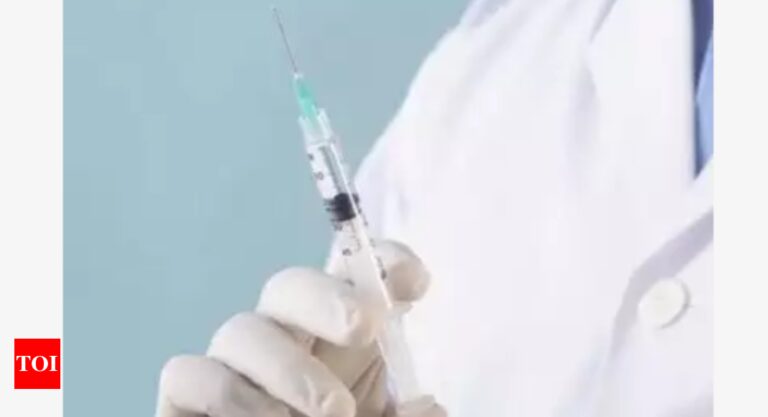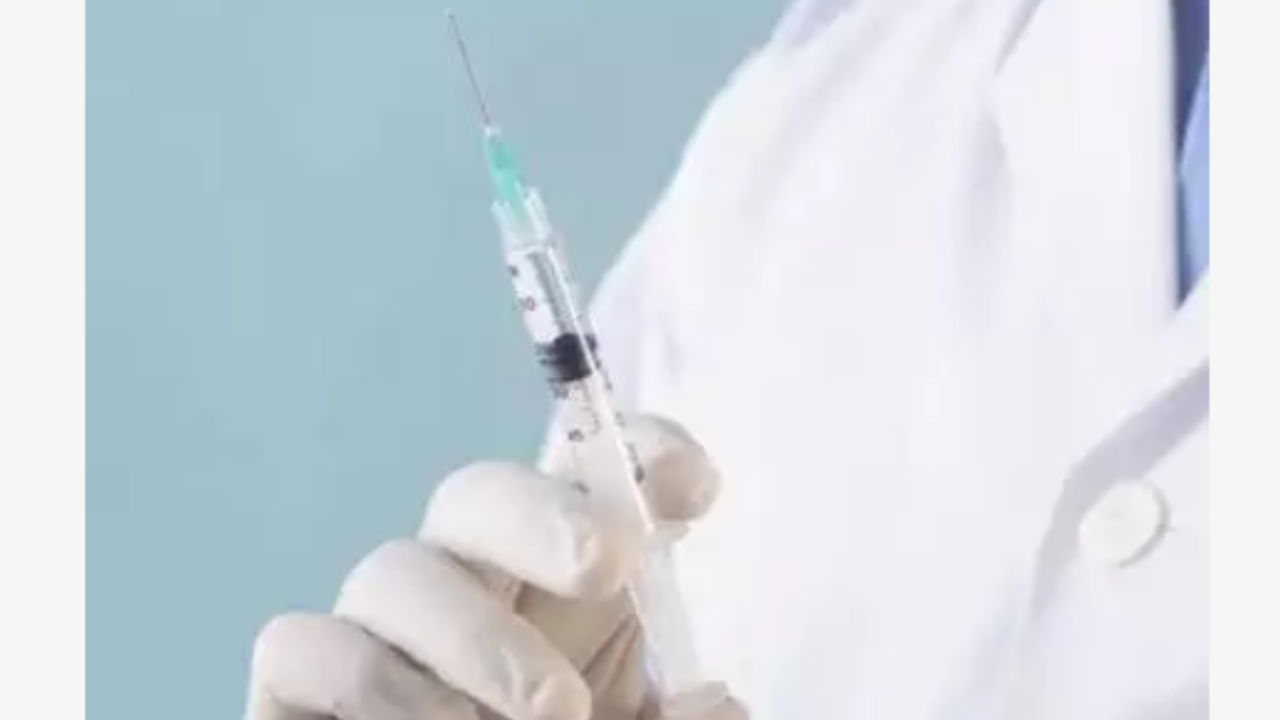
[ad_1]
BENGALURU: Most people are likely to get jabbed only occasionally, but some need jabs more frequently. For instance, an estimated 150-200 million people with diabetes globally need insulin injections twice a day.
While microneedle patches can help inject insulin just below the skin surface without pricking deep like normal syringes, they are manufactured using complex procedures like photolithography that require clean rooms, and are time consuming.
Pointing out that such complexity limits their mass production and self-administration, researchers from the Indian Institute of Science (IISc) and Institute For Stem Cell Science and Regenerative Medicine (inStem) have used a novel method to produce microneedles.
It involves a single-step process where the polymeric microneedle batter (a specific polymer mix) can be poured onto a platform with needle-shaped moulds which have pyramidal tips that can be adjusted to any height, an IISc statement reads.
“…As the batter (polymer mix) solidifies, a perfectly lined up array of hollow microneedles can be peeled off immediately and the setup is ready to produce the next batch right away. This kind of setup does not require an expensive clean room,” the statement added.
The team — Vivek Ghate, Anu Renjith, Kedar Badnikar, Shreyas N Jayadevi, Manjunath M Nayak and Dinesh Subramanyam from IISc, and, Suman Pahal and Praveen K Vemula from inStem, then tested a microneedle patch produced using this method and found that it could precisely deliver the required volume of insulin to diabetic mice in the lab.
In their study, published in the International Journal of Pharmaceutics, the researchers say: “…The working and functional utility of the package in delivering metered drug doses was demonstrated by delivering vitamin B12 (ex vivo) and insulin (in vivo), respectively. The optimised process can be used for large-scale manufacturing.”
IISc said that the researchers hope that this method can fasten the fabrication process of microneedles which can be used to deliver drugs as part of wearable devices.
“Hollow microneedle arrays (HMNs) are an excellent choice for managing chronic diseases requiring the administration of multiple drug doses over a prolonged duration…In this study, polymeric HMNs were fabricated using a novel single-step drop-casting process without needing cleanroom facilities, and sophisticated instrumentation,” researchers added.
While microneedle patches can help inject insulin just below the skin surface without pricking deep like normal syringes, they are manufactured using complex procedures like photolithography that require clean rooms, and are time consuming.
Pointing out that such complexity limits their mass production and self-administration, researchers from the Indian Institute of Science (IISc) and Institute For Stem Cell Science and Regenerative Medicine (inStem) have used a novel method to produce microneedles.
It involves a single-step process where the polymeric microneedle batter (a specific polymer mix) can be poured onto a platform with needle-shaped moulds which have pyramidal tips that can be adjusted to any height, an IISc statement reads.
“…As the batter (polymer mix) solidifies, a perfectly lined up array of hollow microneedles can be peeled off immediately and the setup is ready to produce the next batch right away. This kind of setup does not require an expensive clean room,” the statement added.
The team — Vivek Ghate, Anu Renjith, Kedar Badnikar, Shreyas N Jayadevi, Manjunath M Nayak and Dinesh Subramanyam from IISc, and, Suman Pahal and Praveen K Vemula from inStem, then tested a microneedle patch produced using this method and found that it could precisely deliver the required volume of insulin to diabetic mice in the lab.
In their study, published in the International Journal of Pharmaceutics, the researchers say: “…The working and functional utility of the package in delivering metered drug doses was demonstrated by delivering vitamin B12 (ex vivo) and insulin (in vivo), respectively. The optimised process can be used for large-scale manufacturing.”
IISc said that the researchers hope that this method can fasten the fabrication process of microneedles which can be used to deliver drugs as part of wearable devices.
“Hollow microneedle arrays (HMNs) are an excellent choice for managing chronic diseases requiring the administration of multiple drug doses over a prolonged duration…In this study, polymeric HMNs were fabricated using a novel single-step drop-casting process without needing cleanroom facilities, and sophisticated instrumentation,” researchers added.
[ad_2]
